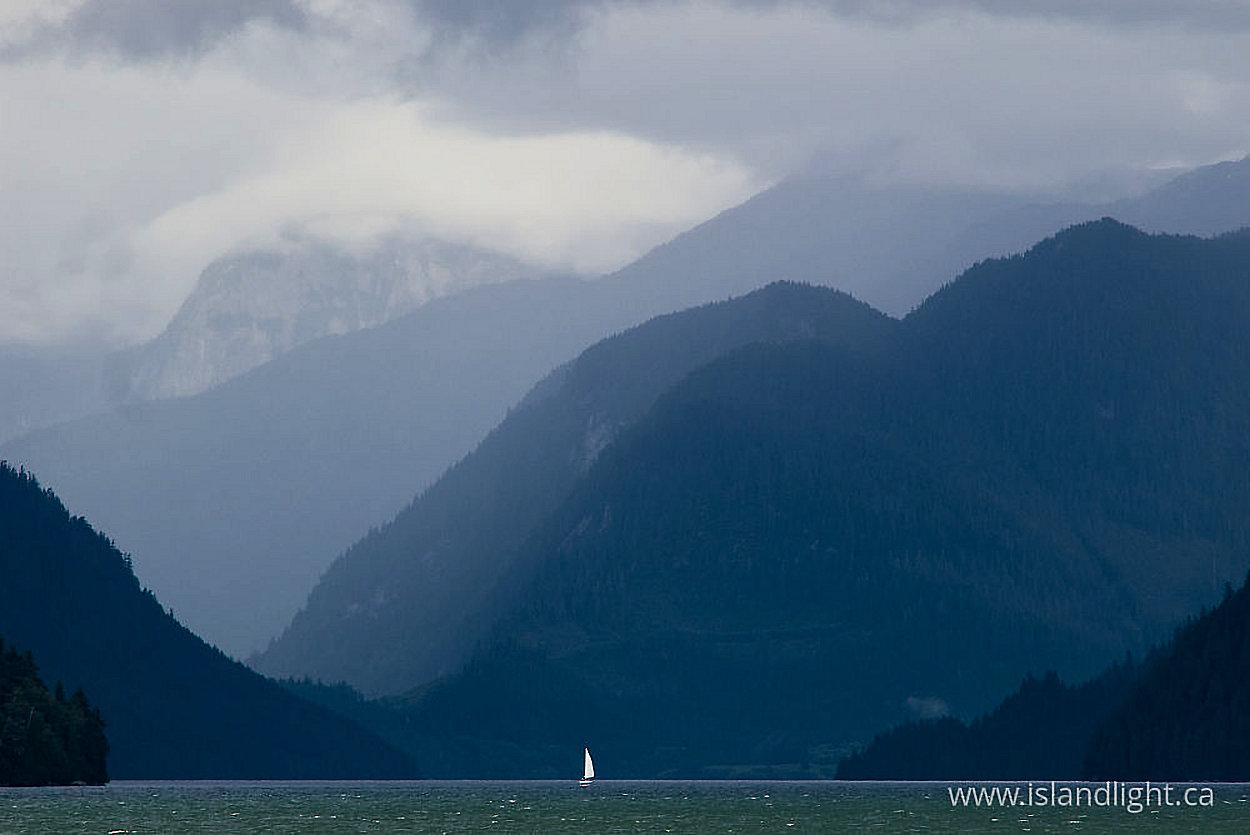Home › Forums › Standing Out in the Field › Moonlight at the Center
Tagged: British Columbia, In the Middle, Knights Inlet, memory
- This topic has 1 reply, 2 voices, and was last updated 08/03/2024 at 1:52 PM by David Filippone.
-
AuthorPosts
-
-
August 3, 2024 at 1:24 pm #1229

Image: Knights Inlet BC, Canada – by Mckenty 2007 all rights reserved – Google Images
Whether we actually practice being at the center of our experience, or simply try to pay attention to our feelings and thoughts as they pass on by, we are probably hoping to be in touch with our own being. But when we use our thoughts to navigate, and use concepts and judgments as our oars, we soon find ourselves outside experience, looking in.
There is no question that we feel more balanced when we have an intimate relationship with our own experience. I’m just not entirely sure how to achieve that intimacy.
Pondering this, I remembered an experience when I was working on a supply boat in British Colombia as a young man. The sixty-foot boat sailed out of Vancouver each week, carrying supplies to logging camps and small communities along the salt water inlets that flow into the Rocky Mountain foothills of northern British Columbia.
I must have been a warm body at the right time and place, because I had never worked on a boat before. But when I asked the skipper of a boat anchored at the Vancouver docks if he needed anyone for his crew, he said, “Be back here at 5:00 am tomorrow morning.”
I have some vivid memories of the months I worked on that boat: standing at the bow as we cleared the protection of Vancouver Island and were suddenly in the middle of the open Pacific Ocean, plunging down into troughs 20 feet lower than the crests; docking at wharves in the middle of the night, with towering mountains rising up into the darkness behind, we would unload the potatoes, rice, flats of canned goods, and whatever was in the hold that the loggers or indigenous communities had ordered that week.
There is one memory from that time that has become part of my inner life.
One night, sailing between stops up Knights Inlet, the captain asked me to man the wheelhouse while everyone else slept. After a quick introduction to the radar, sonar depth-finder, throttle, and what to watch out for, I sat at the wheel for the next six hours. All I had to do was keep the boat on course as it chugged along.
At some point a full moon rose over the mountains to the east, lighting up the water through which we were travelling at about 15 knots an hour. It felt like being in the center of a bowl whose edges were the sides of mountain peaks rising all around. It was impossible to tell by eyesight where the channel was heading. In all directions, there was nothing but a wall of unbroken rock that seemed to form an encircling bowl in the middle of which the supply boat was idling. The only way I knew where the channel was ahead was by looking at the radar. There, on a green illuminated screen, as the radar dish rotated on the roof of the wheelhouse, a constantly refreshed drawing appeared of the channel though which we were sailing. It was only with the aid of the radar that the open water between the close and far edges of the surrounding mountain peaks could be seen.
Remembering this experience, I have always felt that I was completely dependent on the radar to reveal the edges of the inlet and thereby safely thread through the channel; since, in the moonlight, everything around me was just a gigantic ring of stone.
But it occurs to me now that I wasn’t as completely dependent on that radar as is a bat that uses sonar to probe the walls of a cave. As long as the moon was illuminating the mountains around me, I was in the center of a living realm of light. For instance, if I had just kept sailing straight ahead, then the wall ahead, as it turned in one direction or another, would have started to draw closer. I wouldn’t have needed radar to tell me that; I would have directly known to turn the wheel and adjust our heading back toward the middle of the channel. Even with no radar or charts, I would have known when it was time to move toward the retreating shoreline back toward the center of the channel.
Of course, it would have been folly to ignore the radar, since it allowed me to make continuous adjustments long before I saw a rocky wall looming dangerously close. But part of me was already at the heart of a luminous living world, and I didn’t need any outside guidance to know my way through time and space.
The radar was mapping out the path depicted on the nautical charts laid out on a table in the wheelhouse. Together, they made it as easy to travel across the surface of the black water as to drive on the blacktop of an interstate highway. But sitting in the wheelhouse, I was also in the middle of a bowl brimming with the light of the moon. I was at the center of a mysterious realm that was reaching out to let me know that I too am part of a world that is going nowhere because it is already everywhere.
-
August 3, 2024 at 1:52 pm #1230
I wanted to post the introduction to Michael’s above post that appeared on the Center for Creative Inquiry Facebook page here. See as follows…
“Author Michael Gray has written a new Blog on the Center for Creative Inquiry Forum, entitled: ‘Moonlight At The Center’. It’s a brief and lovely story from his past. He begins by saying:
“Whether we actually practice being at the center of our experience, or simply try to pay attention to our feelings and thoughts as they pass on by, we are probably hoping to be in touch with our own being. But when we use our thoughts to navigate, and use concepts and judgments as our oars, we soon find ourselves outside experience, looking in.”
His story unfolds from that point, and as I settled into the telling, this quote by Rinpoche came to mind regarding the edge of the future, not an imagined future, but “the point where the future could be said to come into being.” Michael’s story is an example of what the following quote from Rinpoche foretells…
“Within the steady flow of linear time, there are movements we would consider favorable and others that are unfavorable. Yet if you welcome the future without regard to specifics, you may become aware of a dynamic that unfolds naturally toward improvement.
The more you relax any preoccupations or concerns, the more you may notice this evolutionary thrust in your own experience. For instance, you may go toward being more precise and accurate in your thinking and planning, or toward more stability, richer experience, or moral clarity. Welcome and cherish these tendencies.
…’Dynamics of Time and Space,’ by Tarthang Tulku, p. 331
This introduction to Michael’s story, ‘Moonlight At The Center’, from the CCI Facebook page at the link…
https://www.facebook.com/photo/?fbid=974001064523232&set=a.556042916319051
-
-
AuthorPosts
- You must be logged in to reply to this topic.
